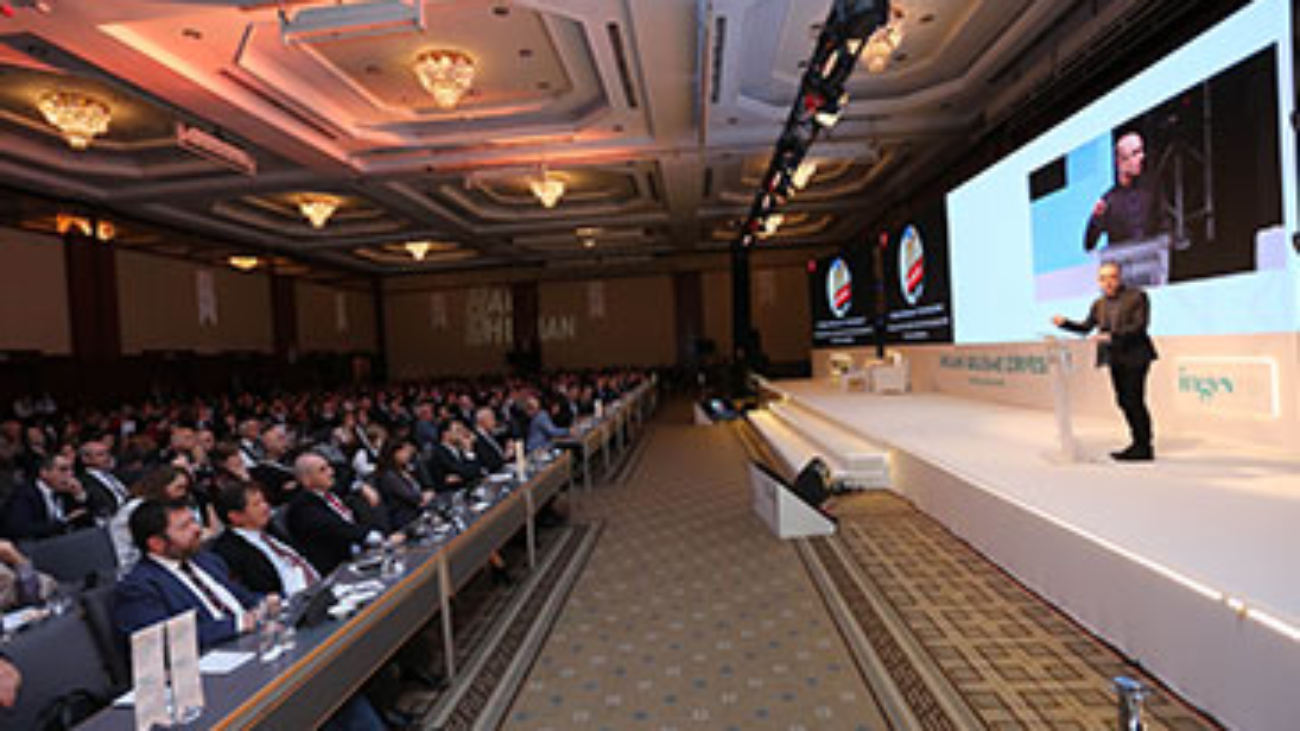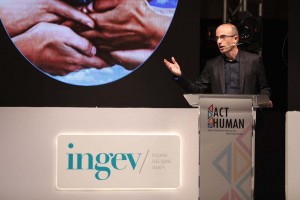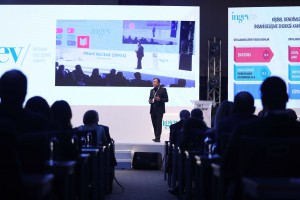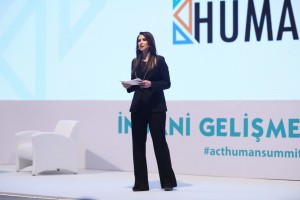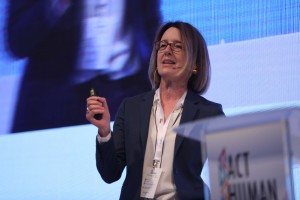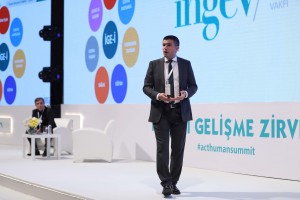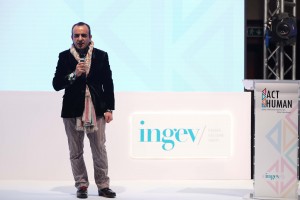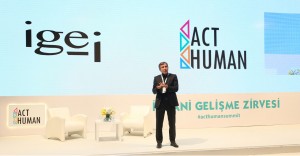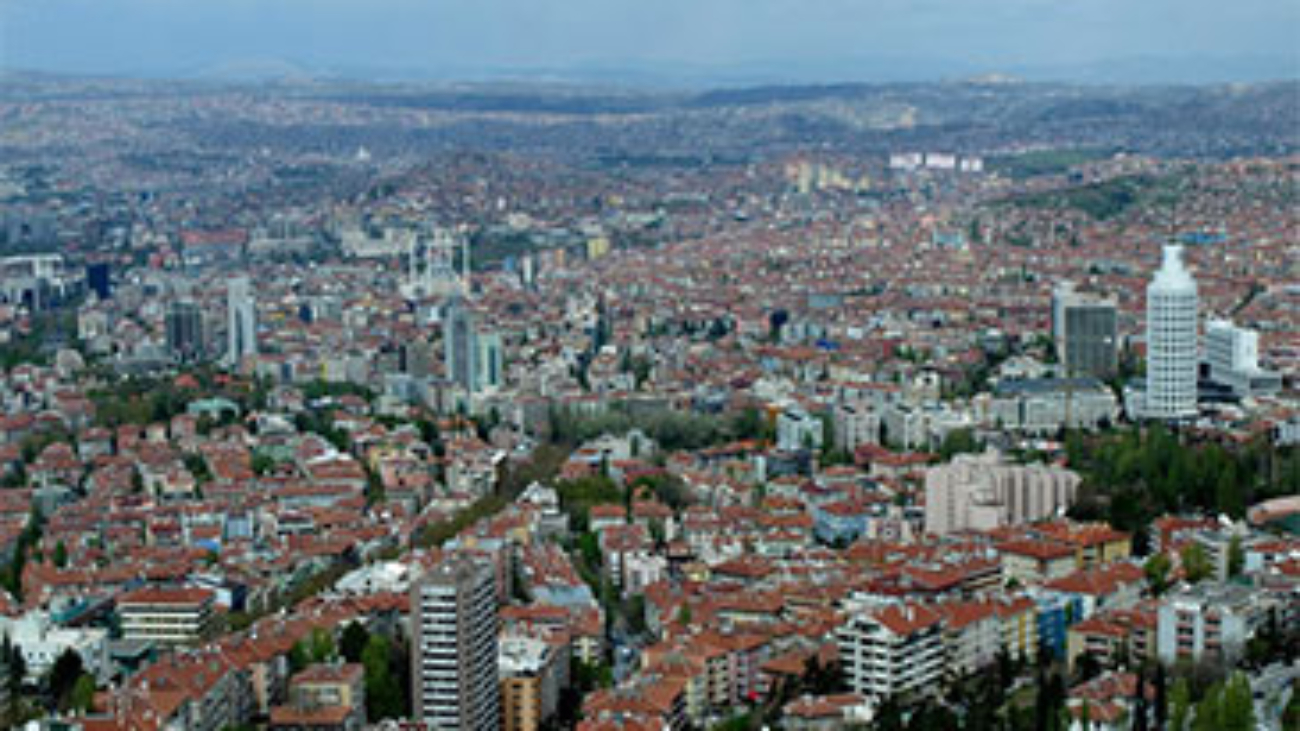A new survey is published on the public opinion about Human Development. Named HDI-P, targets to quantify the public perception of Human Development and its criteria. Human Development Index – Public Opinion receives its data from interviews with individuals about their personal experience. The participants rated shelter (78.8) the most important component of Human Development, while social life (30.7) was voted the least important.
Under UNDP’s leadership, Human Development is a term getting more frequently used every day. UNDP sums up conditions which nurtures Human Development in four main branches: sociological inclusion, environmental sustainability, human rights and security and social justice. Under these conditions, life expectancy, mean years of schooling and income to sustain a decent life quality. The HDI-P study takes action from this point of view, asking peoples own experiences about life; what are the physical conditions like in their houses, can they benefit from health services, have they received the education they wanted, what opportunities does their income level facilitate? In other words, HDI-P inquiries about personal experience, rather than opinions about society as a whole.
HDI-P is a study based on professional field research
Literature review has been done prior to interviews, in order to construct a framework to measure Human Development. A new index system is developed, whereby a question sheet prepared and field interviews are systematically carried out. 61 questions examine 9 factors which contribute to HDI. The field work, financed by INGEV, was conducted using CATI system. 1660 interviews took place in 27 provinces between October-November 2016. Once this is over, HDI-P and its constituent factors identified through quantitative methods. Thus, the dataset is structured as an index and the resulting scores are analyzed.
Our HDI-P score is 59.3 out of 100: strongest subcomponent is shelter (78.8), the weakest is social life (30.7).
Turkey’s overall human development score is 59.3 out of 100. Unfortunately, comparison with previous results or different countries is not possible, as this study is first of its kind. Mathematically, the scores of 100 and 0 are maximum and minimum boundaries, whereas in practice they are unachievable. Our opinion is that 59.3 could be evaluated as a level higher than median but still promising more development.
The analyses revealed three components positively boosting the overall score. According to individuals’ experience, shelter (78.8), human security (74.3) and health (70.5) were the components contributing positively to overall HDI-P. In contrast, social life (30.7), personal finance (43.6) and education (46.3) were all drawbacks which remained very lower than the average.
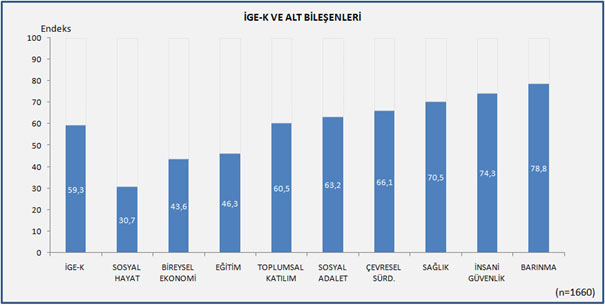
One important message this work conveys is, on the regional scale, the Southeast was noted with critically lower human development experience. The region was awarded a mere 50.1, despite the national average 59.3 and much lower deviation from national average in other regions. Similarly, looking the 20-percentile distributions of HDI-P scores, the highest 20% of Turkey was rated 80.1 on average according to this metric. This score plummets down to 37 in the lowest 20% of the public, demonstrating a vast scale of disparity in terms of Human Development among the nation.
Among the sub-components of shelter (78.8), as previously mentioned highest among other components. The reasons behind this was the steady supply of fuel for heating and cooking purposes with only minor problems within the subject group. On the other hand, cleanliness residential areas (69.8) and noise pollution (65.3) were relatively more problematic, the results indicate.
Although reaching a high index score in total, human security raised the chronic concern of Turkish public. Many suffer from feeling under threat by terrorism (49.9). Besides, many don’t feel religious or ethnic pressures in neighborhood relationships (83.3) and enjoy freedom to practice their religion (83.3) showing the predisposition in our community in favor of reconciliation.
Health, one of the main components, achieved a score (70.5) of high development level too. Access to health services and the way these services are financed together influence this score positively. Nonetheless, food security was the lowest variable under health.
Throughout the whole survey, social life scored the lowest (30.7). Activities such as going to sporting events (17.7), attending art events (26.6) and various other activities revealed very low participation. The lowest 20-percentile in HDI-P, the social life score drops down to 6. We live introverted lives.
Personal finance was a component below the HDI-P average, pulling the overall HDI-P to lower levels. (43.6). Here, the most interesting point was, the cliff between the highest 20-percentile (86.1) and the lowest 20-percentile (8.4). Even the fourth 20-percentile group exhibited a very insufficient level (25.6). We can observe how income distribution is distorted. Assuming that income is the most fundamental factor determining life standard, this deformation probably requires greatest attention while enhancing life standards.
Third element dragging our HDI-P score down was education (46.3). Among the questions, the respondents confirmed that the system is vocationally biased, inducing pupils toward certain professions. Furthermore, they added that the education they received wasn’t targeted at developing their skills or talent. These experiences yielded to a low score.
Finally, social inclusion scored very close to the national average although its subcomponents resulted in high deviation. Here, some subcomponents were puzzling such as membership to societies, trusts or political parties (17.7), following the news from internet, newspaper or TV (46.9) o expressing opinion on social matters (33.3). Considering the current affairs surprisingly, almost no one reported that they feared pressure about their freedom of speech (88.4).






